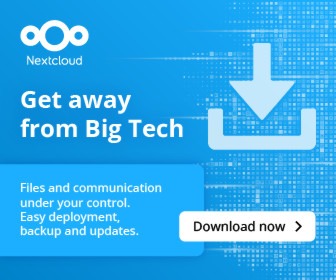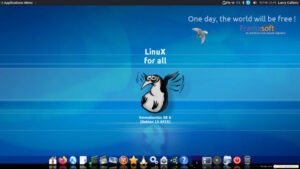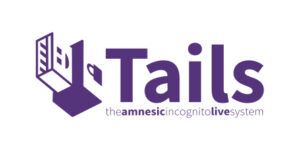If you believe what you read, which isn’t always a good idea, Nadella & Company is good with the fact that Windows’ market share is shrinking and the company is more than willing to share market space with others, like OS X, Chrome OS, and presumably Linux. The common knowledge is that the folks in Redmond have come to accept the future and understand that Windows will no longer continue being the cash cow on which an empire was built. Microsoft, going forward, will be more humble than it was in the past and will be leaving its plans for world domination behind.
 I suspect this new Microsoft is humble like a fox, or more precisely, like a particular lab rat I used to watch on television: that each night as the lights are being dimmed, somewhere in the maze of the Redmond campus an assistant turns to Satya Nadella and says, “What are we going to do tomorrow, boss?”
I suspect this new Microsoft is humble like a fox, or more precisely, like a particular lab rat I used to watch on television: that each night as the lights are being dimmed, somewhere in the maze of the Redmond campus an assistant turns to Satya Nadella and says, “What are we going to do tomorrow, boss?”
“The same thing we do every day, Pinky — try to take over the world.”
In other words, the humbleness is a distraction and Microsoft’s new face is merely a mask. It seems that Nadella, the man behind the mask, is sneaky in ways that Ballmer only wanted to be, but couldn’t because his brain wasn’t wired to understand subtlety.
The details aren’t yet clear, but after Windows 10, Redmond’s flagship product will become a subscription service — Windows on the pay-as-you-go plan. Most likely, it’ll be some sort of rolling release with users automatically updated. It’s certain that this service will come with some perks, which will most likely include free cloud storage (with additional storage being available for a fee), free syncing with mobile devices running Windows, and some gee-whiz must have apps saving in proprietary formats — maybe even a crippled freeware version of Office (click here to upgrade to Microsoft Office Pro).
This would allow Microsoft to offer its operating system at no cost to OEMs — eliminating the Windows tax. Purchasers of new machines would receive a free year’s subscription to Windows, complete with Windows Cloud Storage and MS Office sub-Basic. Eleven months into use, nag screens appear at boot: “Your Windows subscription will expire in 30 days. Click here to renew.” By this time, the user has numerous albums of family photos, reams of documents (stored in the Office proprietary format) and gigabytes of music resting on Redmond’s server. The easiest thing to do would be to click for a subscription and allow Redmond monthly access to the family checking account.
Vendor lock-in has begun.
It’s certain that this is something like what Microsoft has in mind. This sets the company straight with the OEMs again, assuring that Windows remains the easiest-to-get-preinstalled operating system. If done right, it’ll also give users a good reason to switch from Android or iOS to a Windows Phone. Somewhere along the line, as new machines grow old and no longer have the resources for the latest and greatest, there might even be a legacy edition of Windows.
This also might explain why Nadella & Company has been cozying up to Ubuntu, because Canonical might be the most likely candidate to throw a monkey wrench into this plan for world domination. It might be in Microsoft’s interest to keep Shuttleworth close at hand.
Why? Because Canonical can in every way duplicate Microsoft’s plans and offer tit for tat. It has everything: the operating system, complete with mobile integration, cloud storage, even the apps — which won’t need to be offered in crippled versions with an upgrade path.
Oh, it also has a leader who has his own desires for world domination.
This would be a way for Mark Shuttleworth to realize his dream for Ubuntu to become the first distro to successfully monetize desktop Linux. All he needs do is offer a one click upgrade path, from Windows to Ubuntu, with a subscription cost of, say, half of what Redmond will be asking. The upgrade would not only install Ubuntu, but would save all of the documents stored on the user’s local machine as well as migrate everything stored on Microsoft’s cloud. One click. No fuss, no muss. To sweeten the deal: the first six months are free with an easy one click rollback to Windows for those who’re dissatisfied.
For half the price users would get everything they had with Microsoft — more if you consider that they’ll now be running Linux. They’ll have a fully functional (and superior) office suit in LibreOffice, they’ll get GIMP (along with comprehensive online video tutorials on its use), Audacity, and many other free and open source tools. In addition, they’ll get cloud storage and updates, to keep them running a secure version of Ubuntu’s latest and greatest.
They’ll also get (and don’t flame me here) the Chrome browser, or some other way to run Netflix. Sorry, but this won’t work if people can’t do everything with their computers that they’ve come to expect.
Would I use such a service? No, but I don’t need it. And if you’re reading this on FOSS Force, most likely you don’t either. But John Q. Public does.
Any distro could try to do this, but Ubuntu is in the unique situation to actually pull it off. It has the servers, the mobile OS already integrated into its desktop system, and the capital necessary to get the project off the ground. All that needs to be done is to get to work on a single click Windows-to-Ubuntu migration path.
Mark Shuttleworth, are you listening?
You can help FOSS Force grow our coverage by making a contribution during our May Pledge Drive. If you enjoyed this article, please help us by making a contribution. Get all of the details on our Indiegogo campaign page.
Christine Hall has been a journalist since 1971. In 2001, she began writing a weekly consumer computer column and started covering Linux and FOSS in 2002 after making the switch to GNU/Linux. Follow her on Twitter: @BrideOfLinux








Do you really think that Ubuntu will go down the subscription road?
I seem to recall that Mark Shuttleworth has said in the past that Ubuntu will always be free…
It would still be free to download and install. The subscription users would be paying for the cloud, automatic updates, etc… Oh, and Mark Shuttleworth has flip-flopped on promises to the community in the past.
This is going to sound funny coming from me, but I think this would be great, and I hope The Mark is thinking about this.
It would be great for both Ubuntu and FOSS. If someone is happy paying Ubuntu for the cloud storage and automatic updates, fine. If they aren’t, they can be shown free cloud storage sites and ho to manually update Ubuntu, or even switched to a more “Windows like” disto to make them feel comfortable. If Shuttleworth isn’t working on this, perhaps the folks at Mint should be.
Right on Christine! You have expressed my logic better then I could have written it. Our Linux SIG has swapped almost thirty users from Windows to Linux in the past couple of years. We’ve used LinuxMint and LXLE but they both rely on Ubuntu.
I enjoy your writing Christine. I just purchased a Symple computer to test those waters (based on your review). And thanks for the positive spin you always put on free and open source solutions.
Uhm… so you mention built in cloud storage repeatedly as a plus for Ubuntu. What are you referring to exactly? Canonical formally shutdown the Ubuntu One file sync service over a year ago.
In fact they promised to open up the backend code for that service when they shut it down. I’m still waiting for them to release any code at all. Promises Promises. I can’t even get a status update about whether they still even plan to open it up or not.
So yeah, what integrated cloud service are you talking about when you say Canonical could offer as part of a subscription?
-jef
I don’t know about everyone else, but I think this idea sucks. I mean there more than enough willing and able donaters out there that would keep this type of thing from happening. I guess it’s the Geek in me that doesn’t think paying for Linux as a home user is good. In the ENTERPRISE though?…well yes. that WOULD be great, as a matter of fact…isn’t there ALREADY certain distros that are enterprise class,and charge a subscription fee or some kind of rate for Technical Support? Oh yes…Red Hat….SuSE…Oracle….etc. So then why would this make sense to the average Linux user?…maybe I’m missing something here? I mean it’s not like Canonical needs money…so they can’t be doing it for the cash…then what I wonder?…LoL!
I just read there’s talk of Shuttleworth making an IPO and taking Canonical public. This would be a good business strategy for them. They already offer Enterprise technical support and something like this in the business market could work very well. I think I remember something about Canonical working with AMD to produce a self-contained cloud-in-a-box. This, along with their own hosted service and tech support could offer a viable alternative to Microsoft and Google organizations of all kinds. Microsoft already makes a large share of its revenue from Enterprise customers and Google also wants this market using Google Apps and Chromebooks. It would be a viable model for the non-business customers as long as the OS and updates remains free but they make their money with cloud subscriptions and real customer technical support (somehow regular people think that you can call Microsoft to get free technical support for their Windows PCs). BTW, As of this week Dell now offers competitively priced Inspiron laptops with Ubuntu pre-installed on their main site (no digging and hunting needed!). They’re a little bit more than those $200 Windows with Bing laptops that have Atom chips, low RAM, and no storage, but you get a quad-core Pentium, 4 GB RAM and real hdd storage for $250-300. Real computers from a major mfr with Linux. Yea!
I don’t know. I have a lot of trouble imagining a lead in to a subscription like this that wouldn’t bring about open rebellion from a significant portion of Windows users. In the past there were a lot of people who went without virus protection because they wouldn’t accept this sort of thing.
What would happen when the user didn’t pay the subscription? If there would be no real consequences, then this doesn’t change much of anything. If there would be real consequences, then you invite rebellion and even the possibilities of class action lawsuits, depending on what those consequences are.
People have come to expect that the operating system that comes with the computer is free, and security updates for it are free. Microsoft would have to be very careful about how it went about any switch to a subscription service for the operating system, and such a course would be dangerous regardless of how they did it. Of course, complacency will not save them either, so they have to do something.
“…making an IPO and taking Canonical public.”
But then, why not just sell to Microsoft? They have $95 billion of cash sitting around.
@CFWhitman I imagine that if people don’t pay their Windows subscription, there’ll be no more updates, other than security updates, lose all of the free apps and will lose access to their cloud storage. At some point I guess they’d lose access to Windows as well.
I don’t get it. I really don’t. At what point do people wake up and realize that there are perfectly good, easy to use, alternative Operating Systems available for free? When is proprietary software going to be a thing of the past?
I will never share my personal data in cloud. Right now, clould has its golden age, but soon, people will realize that they gave everything to someone, and just like google or facebook – they know everything about you. If you’re only a typical gamer or user, that’s ok, but what about corporations, private, prototype projects ? Still want to store them in the cloud…? Come one…The Clould will end in 7-10 years.